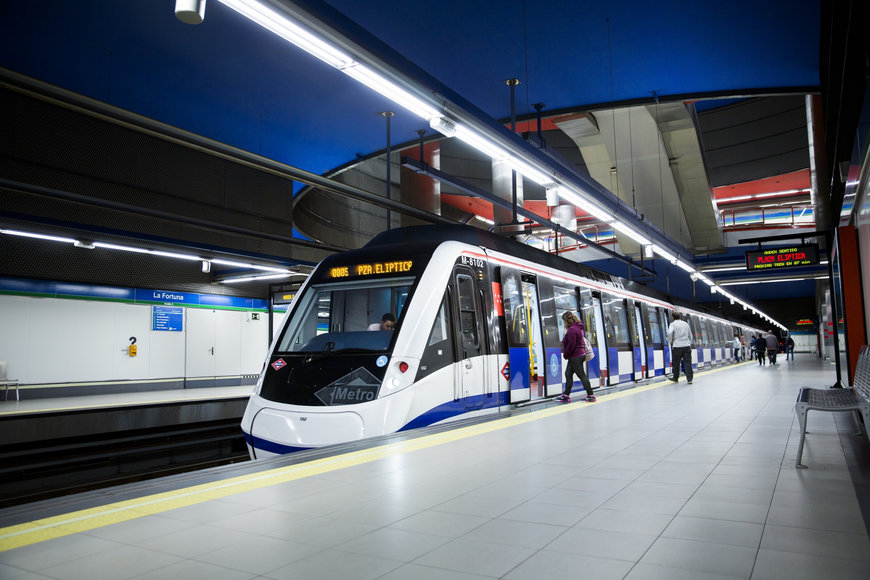railway-international.com
03
'24
Written on Modified on
CAF WINS CONTRACT TO SUPPLY SECOND BATCH OF TRAINS FOR MADRID METRO
For this contract, CAF will supply six-car units featuring a continuous, unobstructed layout with gangways between all the cars.
www.caf.net

Metro Madrid has once again placed its trust in CAF, awarding the company a contract to supply a second batch of new units for the Madrid underground system. This is part of the operator's plans to renew and expand its rolling stock fleet.
The signed contract, covers the design and manufacture of 40 narrow-gauge trains for Line 1, which connects the Pinar de Chamartín and Valdecarros stations. This line was the first in the underground system to be inaugurated in 1919. The contract also includes the development and implementation of a programme to optimise the life cycle of the fleet, including the possibility of increasing the number of units to be delivered in the future, as with the first batch.
For this contract, CAF will supply six-car units featuring a continuous, unobstructed layout with gangways between all the cars. This design will allow high passenger capacity. These state-of-the-art trains will incorporate the latest technological innovations in terms of safety, performance, comfort and maintainability, while maximising energy efficiency.
As mentioned above, this is the second contract that CAF has signed with the Madrid operator this year, following the contract for the supply of 40 wide-gauge trains signed last June. The European Investment Bank (EIB) will provide loans to finance the acquisition of these new units, the main aim of which is to improve the quality of service and increase the capacity of the capital's public transport system. The implementation of the Comunidad de Madrid's environmental policy, combined with rising passenger demand in recent years and growth forecasts, has led to the acquisition of these new, more modern and energy-efficient trains.
As in the previous tender, the award process was extremely rigorous in terms of technical requirements, with aspects such as energy consumption, LCC (Life Cycle Cost) and technical performance of the units playing a major role, including the possibility of semi-automatic operation of GoA2, with the possibility of upgrading to GoA3 automation during the project, where there will be no driver in the cab, but an assistant on board the train to supervise the operation.
www.cafmobility.com

